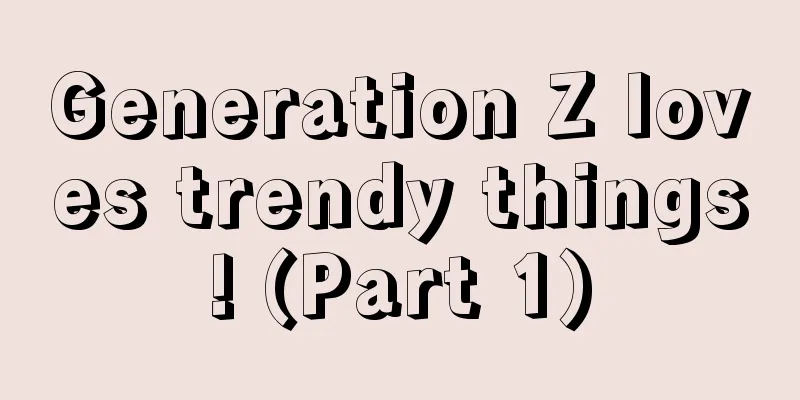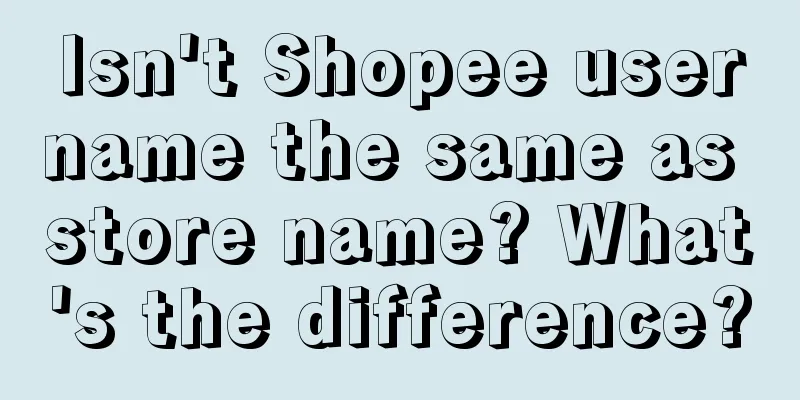How to make a good career choice? What is the logic behind career choice and career planning?

Look at social trends from environmental factors, find the underlying needs of careers from personal needs, look at companies from the industry, and look at positions from the company. This is the complete thinking logic of career planning. As early as the beginning of the epidemic, I said that the economy will enter a downward cycle in the future, and this will be the first economic crisis for many people. In the post-epidemic era, a large number of companies will go bankrupt, some will lay off employees, and some will only have a guaranteed salary... In addition, in the next ten years, there will still be a large number of graduates entering the market every year, and the number of jobs that society can provide will become fewer and fewer... This is true. Many people are facing or will face again the 1% choice in life - finding a job. Therefore, this is not just for a certain group of people, but for the 99.9% of people who need "labor income" Why is it called 1% of choices? Because we seem to make choices every day, and these choices are also pieced together to form results, but for example, what to eat in the evening, rice or noodles, bread or steak, we call such choices that can produce results in the short term, or insignificant, as redundant 99% choices. The remaining 1% of choices determine the direction of your future life and are meaningful. Making such a choice will directly affect your future. In psychology, there is such a thing as a "self-selection effect", which means that once we make a choice, we will continue to follow the inertia of this choice, and it will be self-reinforced in the process. The next time we make a choice, we will make the same or similar choice. In the workplace, most of our choices take a long time to show results, so this 1% of choices is undoubtedly even more important, so we need to think carefully before making every choice. As a side note: many people always regret or want to go back to the past and make a new choice, but when they look back, they will most likely make a similar choice. Of course, this is not just a metaphysical issue but also involves the issue of people polishing their own underlying operating systems, so it is not among the issues to be discussed today. Without talking about metaphysics, let’s just talk about how to think about making good career choices and the logic behind career choices and career planning. There are three factors in choosing a career: industry, company, and position. The industry determines the trend of society, the company determines the direction of the future career path, and the position determines the path for a person to rise. To think through these three factors clearly and match them with personal career choice decisions, we also need to consider personal needs and environmental factors, and jump to a larger dimension to think about this decision-making model. Personal needs include but are not limited to: work location, benefits, team atmosphere, growth space, interests and hobbies, skill development, etc.; environmental factors include but are not limited to: the current stage of the industry, the status of peer competitors, future industry trends, etc. The decision-making model is: starting from personal needs, understanding the current market development rules and future development prospects, and making the final decision. See the social trend from environmental factors, find the underlying needs for careers from personal needs, then look at the company from the industry, and look at the position from the company. This is the complete logic of career choice and career planning. The reasons for analyzing this model are: For those who are new to the workplace, how can they clearly see an industry, a company, and the job requirements, and how can they make decisions based on personal needs and environmental factors? For those who have worked for 3-7 years after graduation, the choices in the job market are gradually increasing. How can they identify the best among the many options and avoid ruining a good hand? Because as you get older, the cost of decision-making becomes higher and higher, your personal career value gradually depreciates with age, you have fewer and fewer choices, and the risk of each career change becomes greater and greater; you need to see the present clearly and predict the future. Many people can see the present but not the future, and they underestimate long-term risks and overestimate short-term gains. 1. Personal needs: What is an ideal job?In fact, there are too many jobs that pay handsomely but you don't really like them, or jobs that you are very interested in but you get very little benefit from investing your passion in. The former may still make a person try hard to like the current job, but the latter can only develop into a hobby. We usually define an ideal job as the intersection of ability, interest, and income. It is a good job in the traditional sense if it is based on interest, ability to do, and brings considerable income. 1. Interests: What do you like to do?This is a very important issue but is overlooked by most people, or few people can really think about what they like to do, so that many times people choose a career passively and accept it inexplicably. The passion for one's job is rarely discussed, and the topics people commonly talk about are often just about the level of job titles, the salary and benefits, and whether the boss and co-workers are idiots or mentally retarded. Few people say what they like most about the job, and of course few people will ask you. The fact is, doing a job you hate not only wastes 8 hours of your time, but also ruins your mood for the remaining 16 hours. Although the working time is only 8 hours, the bad mood can accompany you all day. If you simply enjoy doing a job, that's the job you should do. You will learn a lot and get a lot out of it. Some people may ask, I understand the principle, but I really don’t know what kind of job I like. Of course, everyone’s motivation for achievement is different, and everyone’s shining points are also different. There is a simple way to distinguish them. Find the things that you are not tired of, which are usually your strengths. If you think you haven't found them yet, you can ask your friends. When you feel most anxious and helpless, the things they still recognize about you are your unique strengths. Develop them, and they will become your core competitiveness. It’s like, some people feel painful and impatient when copying PPT templates. If you can polish the PPT over and over again like Jobs, and practice explaining the PPT over and over again, then stick to it, your PPT will definitely be better than that miserable person’s. Of course, we need to make a distinction between interests, conscious interests and aspirational interests. How do we distinguish them? Let me give you an example. For example, I also like to make videos. Before I conceive a video, I will think about the style and content, the script, how to move the camera, how to tell the story... and then shoot a work that I am satisfied with. But I don’t want to become an Internet celebrity by shooting videos, and I don’t want to make a lot of money by video apps, just like I do with painting. These are just my conscious interests. If you want to become an Internet celebrity by shooting videos and then make money on the platform, this is your ambition. Conscious interests can help you discover your hobbies, and aspirational interests can help you practice more purposefully, develop abilities, and even become your job and source of income. There are also two career channels: management channel and professional channel. It is not necessary to move up in the management position to move up in the career path. For example, some people are promoted to supervisors because of their excellent abilities. As a result, they need to spend a lot of time on internal communication and employee relations during their work day, but the results may be very limited, which can easily make people fall into self-doubt. In this case, it is better to let him continue to develop his profession, and at the same time let him realize that his strength is creativity. If he can be further made aware of the necessity of moving from individual creation to team collaborative creation, he may fall in love with his work again. Often this only requires a change in perspective, which can improve his abilities, such as communication and management skills in this example. Of course, the ideal situation is to find a job that you love. If that is not possible, then try to make yourself like your current job, find fun in the boredom, change your working methods, and seek to make your current job more efficient, more effective, and more streamlined, etc... 2. Ability: What can you do?Analyzed from the dimensions of personal learning and work experience, ability is a person's comprehensive rational judgment and is relatively difficult to judge. In order to correctly identify one's own abilities, one needs to look at them from the three dimensions of knowledge, ability, and skills. For example, in terms of personal learning, especially for those who have just graduated from school, learning usually refers to systematic learning of a certain major in school. We may call it knowledge, because no matter what, those who have studied seriously have some theoretical knowledge of the major, but they may have no idea how to solve specific problems... How to accurately define and locate their relationship?
Knowledge, skills and abilities are more like the xyz model. After clarifying the concepts of each of the three, let's look at the relationship between the three: From the perspective of knowledge and skills, knowledge is the basis for the formation of skills, and skills can in turn consolidate the learning of knowledge and deepen the understanding of learning, which means better becoming one's own experience. From the perspective of knowledge, skills and abilities: knowledge and skills are the basis for the formation of abilities and promote the development of abilities; however, the mastery of knowledge and skills does not necessarily lead to the development of abilities. Only when the knowledge and skills have reached a proficient level and have been widely transferred can the development of abilities be promoted; and abilities, in turn, restrict the level of mastery of knowledge and skills and affect the learning progress of knowledge and skills. Personal learning is to learn existing experience and try to transform it into skills to solve practical problems. Work experience can more systematically train people's ability to comprehensively apply knowledge and skills. Usually we can analyze in the job requirements what abilities are needed to be competent for this position. For example, a good new media operation requires applicants to have writing skills, data analysis skills, communication skills, and even the ability to accurately grasp the financial analysis of the budget when planning an event. Interests and abilities are like an interesting couple. When things are going well, they are inseparable, but when things are not going well, they quarrel every day. Interests can make people keep in touch with each other and become abilities. However, abilities do not mean that you are interested in anything. Regarding the relationship between abilities and interests, how to distinguish what you like and what you don’t like can be analyzed using a set of model tools:
We put all the common vocational skills together, divide them into the above four quadrants, and find the best choice for yourself. 3. Benefits: What do you want to gain?The tangible things are salary and benefits, while the intangible things are growth space and skill development. Let's talk about salary and benefits. In most people's minds, salary is a comprehensive assessment of the industry average plus the accumulation of personal working years. Generally, if you don't get a 20% increase when you change jobs, you will be embarrassed to change jobs. But in reality, salary = your personal irreplaceability + the market/company's demand for you. The sum of these two is the investment that the company is willing to give you. Only those who are not clear-headed will change jobs and ask for a salary increase. It is obvious that if the degree of substitutability is high, the salary that the company is willing to pay will inevitably not be high, and this is actually weakly related to industry level and years of work experience. Another factor is the place of work. I remember that a long time ago, not too long ago, escaping from Beijing, Shanghai and Guangzhou was very popular. But in fact, the place of work is crucial to the subtle shaping of people, but because of the lack of measurement standards, people tend to underestimate its influence. Li Jiaoshou once mentioned a concept called "peer pressure": "In the first five years after you came to Beijing, you will meet all your enemies and friends in your life." "My friends in Beijing and my friends in Boston are the bottom line that I cannot fall in my life." The region actually determines the quality of your circle of friends, and vice versa. Of course, this is not meant to be disparaging, but when you are young, you should stay in big cities as much as possible, so that you can meet better people. This is determined by the competitive environment. 2. Environmental factors: How should we perceive the world?The world is chaotic, nonlinear, restless, and dynamic. And in a nonlinear world, we are all slaves to linear thinking. The world is developing nonlinearly, and so are individuals. But in our daily lives, we tend to use linear thinking to explain everything, such as the old saying that you get what you sow, and you are not successful because you don’t work hard enough. Of course we cannot say that all of the above are wrong, but I have to improve this statement: the world is developing nonlinearly, but it has a linear development cycle. Within a certain cycle, the world is linear. We are facing a world of nonlinear development, and each change is the moment of nonlinear development of the world. It is reasonable to look at and grasp it correctly. We must be good at grasping it; within a certain linear cycle, we need concentration. Liang Ning mentioned a "point, line, surface and body" selection theory in the 30 lectures on product thinking. The individual is a point, the industry track is a line, and the economy is behind it. When we make a choice, we need to see what kind of line the entry point is on, what kind of surface this line is on, and what kind of body this surface is on. The examples of choosing Xinhua News Agency and choosing Tencent are exactly the different "bodies" behind people's choices. The real issue that widens the gap lies in the economies behind their choices, one is developing steadily and the other is developing rapidly. The same is true for career choices. The most important thing when looking for a job is still to find an industry, to find a fast-growing industry track. This rapid development breaks the old past and is a "non-linear change." If you can choose such a track, you can enjoy the rewards within the linear cycle of this change and achieve your own rapid development. Start from the "point" that you can do and provide stably; see the "line" instead of getting hung up on the "point" at the moment; when the "surface" is fighting, the "point" on the "surface" is profitable; which body is the surface on? Is this body rising or sinking? Of course, the theory of "point, line, surface and body" is more suitable for professionals who have been working in the industry for a period of time. They have their own judgment on the overall development of the industry and can effectively judge the upward trend of the industry. (How to analyze and judge the industry will be mentioned later). The only thing that remains unchanged is embracing change. In this changing world, the sum of all the benefits we have comes from two sources: The first category is market returns: it refers to the returns we can get by entering a fast-growing market and basically just following the trend. For example, more than ten years ago, if you could buy a house, whether you did it intentionally or unintentionally, you would make money as long as you bought it. The other type is personal income: it is your excess personal income compared to all your competitors in the market. For example, if someone bought a house for self-use ten years ago, no matter how much the house price increased, it was just a number. But if you had a foresight when you bought a house ten years ago, you bought one for self-use and bought two more, which you can choose to sell at the right time or rent out. The income from the two extra houses is your excess personal income. The first type of benefit means that you have made a better choice than others, and the second type of benefit means that you are better than others. Add career planning to this point of thinking and observe with a broader perspective. Fully maximize market benefits and personal benefits, follow the market at a suitable time, and surpass competitors in the process. Career choice also requires such thinking. The personal factor model (ability, interest, and benefit) matches personal ability with expected work from a traditional perspective, while environmental factors provide a top-level perspective to help us realize that the world and individuals must have nonlinear thinking and cognition, and when faced with uncertainty, how should individuals make choices. Finally, we return to the decision-making logic itself: industry, company, and position. 3. How to analyze industries, companies, and positions?Industry: Based on the market returns in the above environmental factors, we can see that the industry is the most important factor, but it is also the most difficult factor to evaluate. When we are preparing to enter or switch to a new industry, you need to spend a lot of time to understand the industry and judge your survival and success rate in this industry. When entering a new industry, it is best to use the opportunity of recruitment to communicate with various professionals in the target company. This will help you to roughly understand the target company's organizational structure, business flow, and different people's good or bad evaluations of companies in the industry. Of course, for a more professional approach, you can also use Porter's Five Forces method to evaluate. An analysis used for competitive strategy can effectively analyze the customer's competitive environment. The five forces are: the bargaining power of suppliers, the bargaining power of buyers, the ability of potential competitors to enter, the substitution power of substitutes, and the current competitive power of competitors in the industry. There is also a simpler method. If you want to analyze a mature industry, you can look for the annual reports of industry leaders. They will generally put forward their own understanding of the development of the industry. For example, if we want to understand the real estate industry, we can find a leading enterprise and download their annual report. They will analyze the real estate industry from multiple perspectives, such as market sales, industry inventory, monetary policy, and future market outlook. After reading it, you can probably understand the current situation and future of this industry, as well as the analysis ideas. When dealing with unfamiliar industries, the best way is to look for investment bank reports. Investment bank research reports generally provide more thorough analysis, which can save you from wasting a lot of time or not knowing where to start. What should we analyze when analyzing an industry? What concepts does this industry involve? What are the subconcepts in the big concepts? What are the other related concepts? What is the development history of this industry? What is the prospect? How has it developed abroad? How is it developing in China? How did the industry reports in the past two years evaluate this industry? Who are the well-known experts in this field? What are their views? What works have they written? What is the competitive landscape of the industry? How many schools of thought are there? What are the representative theories of each? Who are the top companies in this field? What products or services do they have? What major activities are going on in the industry? Or are they going to be? Company: If you don't choose the right industry, you will lose the opportunity to make profits by going with the flow. However, choosing a company, especially for those who have just entered the workplace, is related to a major event in your life. After all, one wrong move can ruin several years and even determine the path for future advancement. When we "sell" ourselves to a company, it is itself an investment, and it is necessary to analyze the company. What should we analyze when analyzing a company? What exactly does this company do? When was it founded? Who founded it? The founder plays a decisive role in whether the company can continue to survive. What is the organizational structure of this company? Who are the executives? How many employees are there? The organizational structure can reflect the company's management style, whether it is flat and efficient, or standardized operations with clear division of labor. What is the market capacity of this industry? What are the pain points? How fast is the development speed? The competition situation (at what stage of the life cycle is it in)? What is the company's position in the industry? What is the company's profit model? Who are the customers? What are the competitive advantages compared with other companies in the same industry? This can determine a company's industry position. How has the main business been in recent years? Are the various financial indicators healthy? What are the key projects? Companies with marginal projects must want money instead of people. How will you expand in the next few years? Are there any new areas to enter? We can find some of the above more or less. The most direct way is to observe through interviews. HR is the core window for a normal company's employer brand building and external connections. Through interviews with HR, or directly communicating with leaders, we can perceive the logic of his/her speech and communication style. The leadership style of a department usually also represents the style of the team. Through interview conversations, we can also have an indirect perception of the level and style of the team we are about to join. If HR and direct leaders are unprofessional everywhere and lack understanding of the industry and the company, then it will be difficult for the company to have outstanding talents in the industry and naturally it will not be competitive. Position: Position is usually consistent with personal work experience. People who achieve horizontal leap in position are undoubtedly very powerful. Horizontal leap refers to changing careers without changing jobs, such as from real estate sales to car sales. In personal career planning, when choosing your next job, it is best to choose one that is 20% beyond your ability to have upward value. This way you can avoid wasting one year's work experience in ten years. Make a full and objective match between the target company's position JD and the job requirements obtained in the interview and your own abilities and qualities. You should know which ones you can handle easily, which ones require hard work, and which ones you can't handle at all. This way, you can evaluate yourself without waiting for notification from the employing company. On this basis, you can look at the next opportunity and evaluate your own salary requirements in a more reasonable and objective manner. Finally, some people say that it is too difficult to look at industries and trends. If my above “analyzing an industry, analyzing a company” still cannot help you, or if you really find it difficult to analyze effectively due to various “information gaps”, I can provide some suggestions. 4. Some suggestions:1. Do not change positions when crossing industries. Choose an industry related to your original industry.Job hopping is the fastest way to make further career choices, and it helps some people who initially made the wrong choice to switch to a high-speed development track as quickly as possible. The fastest way to switch is to engage in work related to the original career. However, it is best not to change industries without reason, but to choose an industry that is somewhat related to the original industry, so that you have greater advantages. For example, if you used to work as a reporter for traditional sports media, you can change industries and work as a reporter for Internet sports new media. Industry-related and with experience to draw on, this is very important for being able to skillfully play the value. This not only means that existing work experience and resources can be more valuable, but also means avoiding the embarrassing situation of demotion and salary reduction in the process of switching tracks. Mr. Zhang Yan, President of the Financial Times, once said: There will always be many new opportunities for a person who sticks to an industry. For example, traditional media people will later catch up with the Internet and then the mobile Internet. There will always be various opportunities. As long as you learn to switch tracks in existing industries, you will never be out of date. 2. Do not change industries or positions, but choose a new job that covers your existing jobChanging jobs without changing industries is also a way to quickly switch career paths. This requires us to stay in the original industry, but be able to switch to some new jobs that have been created through industrial upgrades. These jobs should preferably include some of our previous work, and they should preferably be new jobs created under the trend of the times. These jobs can be easily found through industry reports and company new recruitment quotas. Especially in the advertising industry and the Internet field, a large number of new positions and job changes are actually upgraded from the original ones. For example, there are very few Chinese marketers who are truly professionally trained. Most of them are scattered in various minor positions. They are the group of people who will be upgraded in the professional channel in the future. For example, those who start from new media operations can try to move towards brand public relations and brand communication. The content production and event planning in the original new media operations are also needed in public relations and communication positions. Therefore, changing jobs without changing industries is also a feasible approach. A job that includes your original job skills and can provide new work skills on this basis is definitely a good choice. Industries are iterating rapidly, and there is often not enough time to train talents for new positions in schools and other industries. If you stick to your own industry, you will have the most sensitive sense of smell. Also, because new professions are created due to the needs of industrial development, the threshold is relatively low and the information is relatively private. 3. Change both the industry and the position, keep learning and try your luckI want to completely tear down everything and start over, but conventional recruitment cannot meet this need because the essence of all recruitment is to recruit people with work experience. The first two ways of switching career tracks are both about explaining the relevance of transformation. If you grasp the relevance, you will have a glimmer of hope and can develop further by switching tracks. The Internet industry is extremely developed, and many well-known business people will form communities and training camps through knowledge payment and other behaviors. These people are often very good benefactors. Frequently helping these people, gaining certain professional skills through part-time or free help, and gaining the trust of others is the best way to quickly change both industries and positions. If you want to completely overturn your previous career, this is basically the most effective way. Paying attention to some self-media accounts for a long time can also get in touch with people in the company by participating in their activities. Finding the right person and making efforts to gain the other party's trust is the fastest way. Of course, in a nonlinear world, accurate grasp and determination are needed. The earlier you start career planning, the better. Author: Wang Bubai Source: WeChat public account "Bubai Power Account" |
<<: The next traffic trend of Tik Tok!
>>: Is it still possible to increase the volume of Xiaohongshu?
Recommend
Check for duplicate names, earn 3,000 a day
The author of this article shares a small money-ma...
How does an Amazon store operate? Things to note when operating on Amazon
Amazon is a very hot e-commerce industry. Like Ali...
Can eBay operators contact customers directly? What do operators need to do?
In the process of cross-border e-commerce, communi...
GMV exceeds 80 million. Is Xiaohongshu going to enter the field of e-commerce live streaming?
Xiaohongshu’s current status in the live streaming...
How do young people today celebrate the New Year?
This article mainly describes the way contemporary...
The guild’s operating philosophy has changed: anchors are selected from “one in a hundred”, there is no PK, and brushing turnover has become history?
Under the new anchor model, what happened to the g...
Discussion on Brand Key Visual Design (2023 Edition)
You may know a little about brand key vision, but ...
Netflix is really anxious for advertising fees
Why did Netflix, which has always been a Buddhist,...
What are the Lazada tiers for? What are the tiers?
On the Lazada platform, sellers and buyers have a ...
Entrepreneurs join Taobao Live, can the “True Return” story be replicated?
Why do many bankrupt entrepreneurs choose to join ...
Do Amazon customer service staff speak English? What is this job like?
Amazon, a cross-border e-commerce platform, is ver...
Go first and plan later, "advisory travel" has changed independent travel
Explore the novel model of "advisory travel&q...
10 suggestions from friends after 618
Weak consumption may be caused by a variety of fac...
Which sellers does eBay have the most restrictions on? What are the main restrictions?
After opening a store on a cross-border e-commerce...
To operate the user in a refined manner, it is enough to do these two things well.
What is user-based refined operation? How can we a...









